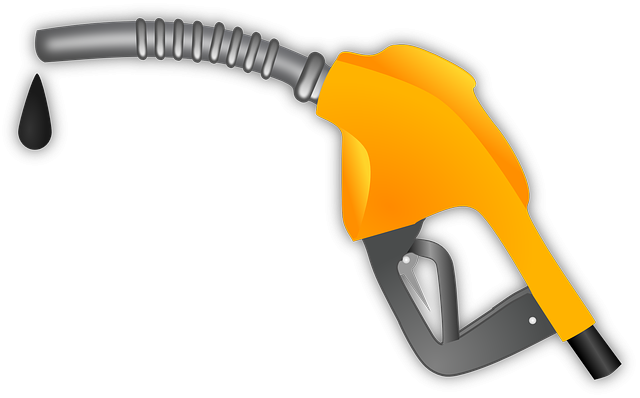Overview of the oil and gas production
The oil and gas production industry is one of the largest and most profitable industries in the world, and it relies heavily on the skills and expertise of its workforce. Skilled professionals are in high demand, and those with the right qualifications can earn high salaries and enjoy rewarding careers. In this article, we will explore the best paying jobs in oil and gas production, from drilling to refining. We will delve into the job descriptions, average salaries, and education and experience requirements for each role. By the end of this article, you will have a comprehensive understanding of the different career paths available in the industry and the skills and qualifications required to succeed in them. So, whether you are a seasoned professional or just starting out, read on to discover the best paying jobs in the oil and gas production industry.
Upstream Oil and Gas Production Jobs
Definition of Upstream Oil and gyas Production and List of The Best-Paying Jobs in Upstream Oil and Gas Production
Upstream oil and gas production refers to the exploration and extraction of natural resources from the ground or underwater. This stage involves activities such as drilling, well completion, and production. The best paying jobs in upstream oil and gas production include:
Drilling Engineer
• Job description: responsible for designing and implementing drilling plans to extract oil and gas from the earth's surface
• Average salary: $143,000 per year
• Education and experience requirements: bachelor's degree in engineering, extensive knowledge of drilling techniques, and experience in drilling operations
Petroleum Engineer
• Job description: designs and develops methods for extracting oil and gas from the ground or seabed
• Average salary: $137,000 per year
• Education and experience requirements: bachelor's degree in engineering, knowledge of oil and gas production techniques, and experience in drilling operations
Geologist
• Job description: studies the earth's crust to locate oil and gas reserves
• Average salary: $100,000 per year
• Education and experience requirements: bachelor's or master's degree in geology, knowledge of geological surveying techniques, and experience in oil and gas exploration
Production Manager
• Job description: oversees the production of oil and gas, from well completion to transportation
• Average salary: $117,000 per year
• Education and experience requirements: bachelor's degree in engineering or related field, extensive knowledge of oil and gas production techniques, and experience in drilling operations
Production Engineer
• Job description: responsible for maximizing the production of oil and gas from wells
• Average salary: $110,000 per year
• Education and experience requirements: bachelor's degree in engineering, knowledge of production techniques, and experience in drilling operations
These roles require a combination of technical knowledge, engineering skills, and experience in drilling operations. A bachelor's or master's degree in a relevant field, such as petroleum engineering or geology, is typically required. Additionally, certifications and licenses may be required to work in these roles.
Midstream Oil and Gas Production Jobs
Definition of midstream oil and gas production and List of the best-paying job
Midstream oil and gas production refers to the transportation, storage, and processing of oil and gas after they have been extracted from the ground or seabed. This stage involves activities such as pipeline construction, oil and gas transportation, and storage. The best paying jobs in midstream oil and gas production include:
Pipeline Engineer
• Job description: designs and develops pipelines for the transportation of oil and gas
• Average salary: $110,000 per year
• Education and experience requirements: bachelor's degree in engineering, knowledge of pipeline design and construction, and experience in midstream operations
Logistics Manager
• Job description: oversees the transportation and storage of oil and gas
• Average salary: $92,000 per year
• Education and experience requirements: bachelor's degree in logistics or related field, extensive knowledge of transportation and storage techniques, and experience in midstream operations
Terminal Manager
• Job description: oversees the operation of oil and gas terminals, including storage, loading, and unloading of oil and gas
• Average salary: $97,000 per year
• Education and experience requirements: bachelor's degree in engineering or related field, extensive knowledge of terminal operations, and experience in midstream operations
Metering Engineer
• Job description: designs and implements metering systems for oil and gas transportation and storage
• Average salary: $92,000 per year
• Education and experience requirements: bachelor's degree in engineering, knowledge of metering systems, and experience in midstream operations
Process Engineer
• Job description: designs and optimizes processes for the transportation and storage of oil and gas
• Average salary: $98,000 per year
• Education and experience requirements: bachelor's degree in engineering, knowledge of process design and optimization, and experience in midstream operations
These roles require a combination of technical knowledge, engineering skills, and experience in midstream operations. A bachelor's or master's degree in a relevant field, such as engineering or logistics, is typically required. Additionally, certifications and licenses may be required to work in these roles.
Downstream Oil and Gas Production Jobs
Definition of downstream oil and gas production and List of the best-paying jobs
Downstream oil and gas production refers to the refining and processing of crude oil and natural gas into usable products such as gasoline, diesel, and lubricants. This stage involves activities such as refining, petrochemical production, and marketing. The best paying jobs in downstream oil and gas production include:
Refinery Manager
• Job description: oversees the operation of an oil refinery, including production, maintenance, and safety
• Average salary: $150,000 per year
• Education and experience requirements: bachelor's degree in engineering or related field, extensive knowledge of refinery operations, and experience in downstream operations
Process Safety Manager
• Job description: oversees the implementation of safety procedures in a refinery or petrochemical plant
• Average salary: $120,000 per year
• Education and experience requirements: bachelor's degree in engineering or related field, extensive knowledge of process safety, and experience in downstream operations
Chemical Engineer
• Job description: designs and develops processes for the production of petrochemicals
• Average salary: $104,000 per year
• Education and experience requirements: bachelor's degree in chemical engineering, knowledge of chemical processes, and experience in downstream operations
Marketing Manager
• Job description: oversees the marketing and distribution of refined products
• Average salary: $110,000 per year
• Education and experience requirements: bachelor's degree in marketing or related field, extensive knowledge of marketing strategies, and experience in downstream operations
Refinery Engineer
• Job description: designs and optimizes processes for the refining of crude oil
• Average salary: $100,000 per year
• Education and experience requirements: bachelor's degree in engineering, knowledge of refining processes, and experience in downstream operations
These roles require a combination of technical knowledge, engineering skills, and experience in downstream operations. A bachelor's or master's degree in a relevant field, such as engineering or marketing, is typically required. Additionally, certifications and licenses may be required to work in these roles.
Overview of the Oil and Gas Production Value Chain
The oil and gas production value chain refers to the different stages involved in the exploration, extraction, transportation, and processing of oil and gas resources. These stages include upstream, midstream, and downstream operations. Each stage is critical to the overall production process, and a breakdown in any stage can lead to disruptions and losses for companies.
Upstream operations involve the exploration and extraction of oil and gas resources from the ground or seabed. This stage involves activities such as drilling, well testing, and production. The extracted oil and gas are then transported to midstream operations.
Midstream operations involve the transportation and storage of oil and gas resources. This stage involves activities such as pipeline construction, oil and gas transportation, and storage. The transported oil and gas are then processed in downstream operations.
Downstream operations involve the refining and processing of crude oil and natural gas into usable products such as gasoline, diesel, and lubricants. This stage involves activities such as refining, petrochemical production, and marketing. The refined products are then distributed to consumers.
Each stage of the value chain is critical to the overall production process. For example, upstream operations ensure the availability of crude oil and natural gas resources, midstream operations ensure the transportation and storage of resources, and downstream operations ensure the processing of crude oil into refined products that are usable by consumers.
Different jobs in each stage of the value chain work together to ensure the smooth running of operations. For example, a pipeline engineer in midstream operations designs and develops pipelines for the transportation of oil and gas, while a refinery engineer in downstream operations designs and optimizes processes for the refining of crude oil. These different roles and activities are interconnected, and any breakdown in any stage of the value chain can have a ripple effect throughout the entire production process.
Skills and Qualifications for Best-Paying Jobs in Oil and Gas Production
The oil and gas production industry requires skilled professionals with a range of technical and soft skills. The following are some common skills and qualifications required for best-paying jobs in the industry:
1. Technical Skills: Most best-paying jobs in the oil and gas production industry require technical skills, including knowledge of engineering principles and scientific principles related to the extraction, transportation, and refining of oil and gas.
2. Soft Skills: Effective communication, problem-solving, and critical thinking skills are essential in the oil and gas production industry.
3. Education and Experience: A bachelor's or master's degree in a relevant field, such as engineering, geology, or business, is often required for high-paying jobs in the industry. Relevant experience in the industry is also valued, with many jobs requiring several years of experience in a related field.
4. Certifications and Licenses: Many jobs in the oil and gas production industry require certifications and licenses. For example, a drilling engineer may need a Professional Engineering license or a drilling supervisor may need a Well Control Certification. These certifications and licenses can improve job prospects and increase salaries.
In addition to the above skills and qualifications, the oil and gas production industry also requires individuals with a strong work ethic, the ability to work well under pressure, and a commitment to safety.
In summary, the oil and gas production industry requires skilled professionals with a range of technical and soft skills, as well as education and experience. Certifications and licenses are also important for improving job prospects and increasing salaries in the best paying jobs in oil and gas production.
Conclusion
Summary of the best-paying jobs in each stage of the value chain
Final thoughts on the importance of skilled professionals in the oil and gas production industry and Advice for job seekers interested in pursuing a career in the industry
In conclusion, the oil and gas production industry offers a variety of high-paying jobs in each stage of the value chain, including upstream, midstream, and downstream operations. Some of the best-paying jobs in upstream operations include petroleum engineer, drilling engineer, and geologist. In midstream operations, pipeline engineer and operations manager are among the best-paying jobs, while in downstream operations, refinery manager, process engineer, and petrochemical engineer are among the highest-paying jobs.
The oil and gas production industry is reliant on skilled professionals with a range of technical and soft skills, as well as education and experience. Safety, efficiency, and innovation are key drivers of success in the industry, and professionals in the field must be committed to continuous learning and improvement.
For job seekers interested in pursuing a career in the oil and gas production industry, gaining relevant education and experience, obtaining certifications and licenses, and developing a strong work ethic are all important steps to take. Networking with industry professionals and staying up-to-date with industry trends and innovations can also help job seekers stand out in a competitive job market.
Overall, the oil and gas production industry offers a range of high-paying and rewarding career opportunities for skilled professionals who are committed to safety, innovation, and sustainability.



